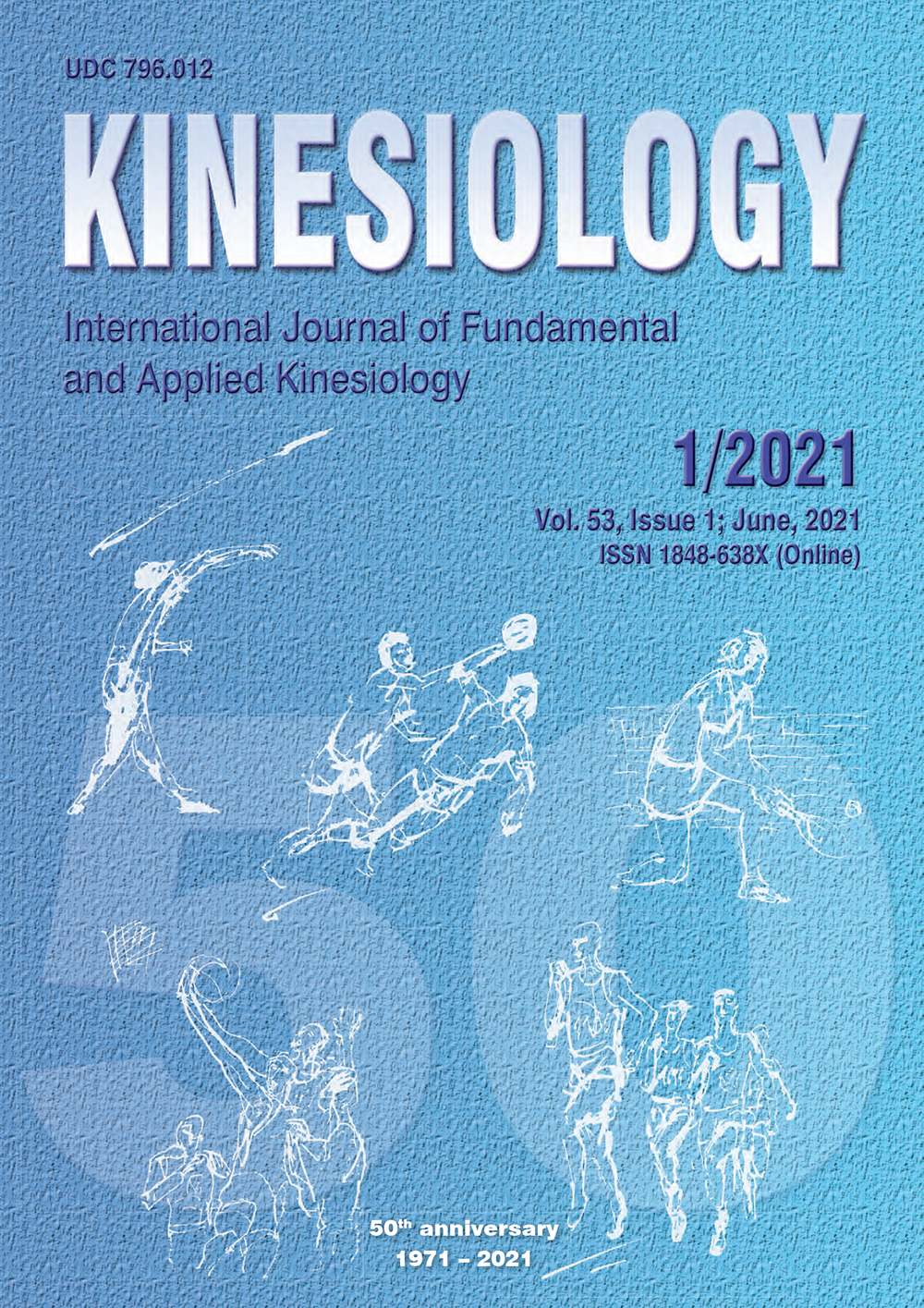Evidence-based recovery strategies in futsal: a narrative review
Abstract
Futsal (FT) can be defined as a multiple sprint sport with intermittent high-intensity activities. It could be considered one of the most demanding team sports due to the FT player’s heart rate mean of approximately 90%, work to rest ratio of 1:1 and activity changes every three seconds. Besides, unlimited number of substitutions, size of the pitch, a smaller ball and constant proximity of the opponent that puts extremely high demands on FT players are the main characteristics of the game. With studies reporting that participating in a FT match provokes muscle damages and inflammations, with a high injury incidence, it is of vital necessity to examine the most efficient methods providing fast recovery of FT players between practice sessions and matches played. Research studies focused on recovery methods in other team sports such as basketball, volleyball, and rugby, among others, reported benefits of passive recovery (massage, water therapy, stretching), active recovery and nutritional techniques. However, for the best of the authors’ knowledge, a limited number of recovery methods has been provided for the game of FT. The most effective recovery methods for FT players are only found to be photobiomodulation therapy and optimal sleeping regimen. Thereby, the main aim of the current narrative review is to present available scientific literature of recovery methods that may have positive effects on FT players.
Key words: futsal, recovery methods, fatigue
Downloads
Published
How to Cite
Issue
Section
License

This work is licensed under a Creative Commons Attribution-NonCommercial 4.0 International License.
At Faculty of Kinesiology we recognize that access to quality research is vital to the scientific community and beyond. Kinesiology is non-profit journal and all costs of publishing and peer review process are covered by the publisher itself or other funding sources like Ministry of Science and Education of the Republic of Croatia. Full text papers are also available free of charge at http://hrcak.srce.hr/kineziologija. There are no restrictions on self archiving of any form of paper (preprint, postprint and publisher's version).
Articles are distributed under the terms of the CC BY - NC 4.0
Kinesiology does not charge any fees to authors to submit or publish articles in our journal.


